Panel Discussion
Cybersecurity in 2021: New Threats, Challenges, and Opportunities
Speakers

Ragib Hasan, University of Alabama at Birmingham, USA
Ragib Hasan, Ph.D., explores research on cloud security, the Internet of Things, digital forensics, mobile malware security, secure provenance, biomedical device security, social network security, and database security. He is the founder of the Secure and Trustworthy Computing Lab (SECRETLab) at UAB. He is also a member of the UAB Center for Cyber Security and a member of the NIST Working group on Cloud Forensics.
Dr. Hasan’s research is supported by the Department of Homeland Security, the Office of Naval Research, the National Science Foundation, Facebook Inc., Google Inc., and Amazon Inc. He is a 2014 awardee of the prestigious NSF CAREER Award from the National Science Foundation for his work on cloud security. Dr. Hasan is also a recipient of the Google RISE Award (2013), Information Society Innovation Fund Award (2013), Deutsche-Welle Best of Blogs and Online Innovation award for his BanglaBraille project (2014), Google Faculty Research Award (2011), NSF Computing Innovation Fellowship (2009), and the Chancellor Award and Gold Medal from Bangladesh University of Engineering and Technology (2003).
He is a founding member of Wikimedia Bangladesh chapter and a long term administrator of Bangla and English Wikipedias. He also founded Shikkhok.com, an award-winning online education platform for advancing STEM education in rural areas of India and Bangladesh that has won the 2013 Google RISE Award and 2013 Information Society Innovation Fund Award.
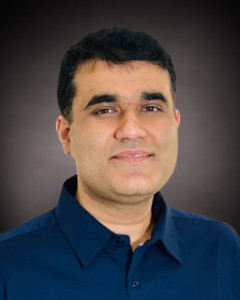
Syed Rafiul Hussain, Pennsylvania State University, USA
Syed Rafiul Hussain is currently an Assistant Professor in the Department of Computer Science and Engineering at Pennsylvania State University. Before joining Penn State, he worked as a postdoctoral researcher at Purdue University from where he also received his Ph.D. in December 2018. His research interests broadly lie in network and systems security with a focus on the fundamental improvement of security and privacy analysis of emerging networks and cyber-physical systems, including cellular networks and Internet-of-Things. His papers have received awards and nominations, including ACSAC’19 distinguished paper award, NDSS’19 distinguished paper award honorable mention, and ACM SIGBED EWSN’17 best paper award nomination. He has been inducted twice in the Hall of Fame Mobile Security Research by GSMA for his contribution in identifying 20+ new protocol flaws in 4G and 5G cellular networks. His findings led to several changes in the 4G and 5G cellular protocol designs and in operational networks. His work has been featured by mass media outlets worldwide, including the New York Times, Washington Post, Forbes, MIT Technology Review, ACM TechNews, and The Register. More details can be found at https://syed-rafiul-hussain.
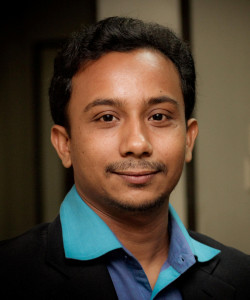
Nashid Shahriar, University of Regina, Canada
Nashid Shahriar is an Assistant Professor in the Department of Computer Science at University of Regina. He received his Ph.D degree from the School of Computer Science, University of Waterloo in 2020. He received his MSc. and BSc. degrees in Computer Science and Engineering from Bangladesh University of Engineering and Technology (BUET) in 2011 and 2009, respectively. He was a recipient of Ontario Graduate Scholarship, President’s Graduate Scholarship, and David R. Cheriton Graduate Scholarship with the University of Waterloo. He received several recognitions, including the 2020 PhD Alumni Gold Medal from the University of Waterloo, the IEEE/ACM/IFIP CNSM 2019 Best Paper Award, IEEE NetSoft 2019 Best Student Paper Award, and the IEEE/ACM/IFIP CNSM 2017 Best Paper Award. His research interests include network virtualization, 5G mobile network slicing, elastic optical networking, software-defined networks and network reliability.
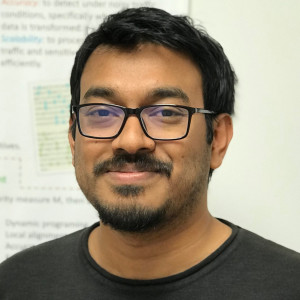
Sazzadur Rahaman, University of Arizona, USA
Sazzadur Rahaman is an assistant professor in the Department of Computer Science at the University of Arizona. He works towards making security research more democratized and affordable. He is broadly interested in computer security and privacy problems, specifically in building robust systems and methodologies by using program analysis, formal verification, applied cryptography, and machine learning-based techniques. His research stirred both industry and academic interests, over the years. Sazzadur completed his Ph.D. from Virginia Tech. As the recognition of his work, he received several fellowships (Bitshare fellowship and Pratt fellowship) at Virginia Tech. Prior to joining Virginia Tech, he worked as a software engineer. He has 3.5+ years of industry experience in building health care, payment, and financial technology solutions. He received his B.Sc. in computer science at Bangladesh University of Engineering and Technology (BUET).
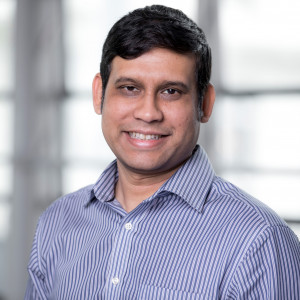
Md Sadek Ferdous, Shahjalal University of Science and Technology, Bangladesh
Md Sadek Ferdous is an Assistant Professor in the Department of Computer Science and Engineering of Shahjalal University of Science and Technology (SUST), Sylhet, Bangladesh. His research interests lie in the intersection of blockchain, identity management, security, privacy and trust. He is the founder of the first-ever blockchain-focused security research laboratory, called SUBSEL (Shahjalal University Blockchain and SEcurity Laboratory), in Bangladesh at SUST. Before joining SUST, he worked as a Research Associate at the Centre for Financial Technology of Imperial College Business School, Imperial College London, UK, working in a blockchain project with Citigroup to investigate how blockchain can be utilised to mitigate Business Email Compromise attacks. He is still associated with the Centre to continue this research from SUST. While at Imperial, he had the opportunity to work at the UK Cabinet Office as their first Technology Fellow. He was a part of a joint-project involving the UK Cabinet Office, UK Ministry of Justice and UK Police in which he explored how blockchain technology could be leveraged for securing digital evidence. This had been a very successful project and it received world-wide media attention. He also worked as Post-doctoral research associates at the University of Southampton and University of Glasgow. He completed his PhD from the University of Glasgow on Identity Management. He had a double master’s in Security and Mobile Computing from the Norwegian University of Science and Technology, Norway and University of Tartu, Estonia. He also was the principal author of the National Blockchain Strategy of Bangladesh.
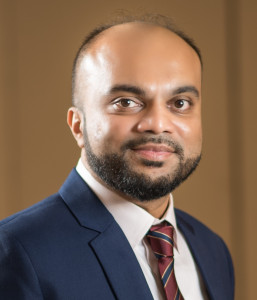
Khaza Newaz Muhammad PMP, CEH
CEO & Founder, DataSec Limited
Director, Logic&Thoughts Limited
Khaza Newaz Muhammad is CEO & Founder of DataSec LTD and Director of
Logic&Thoughts LTD. He obtained Post Graduate Certificate in Industrial
Research and Technology Management from Warwick University (UK) and
received Specialization in Cybersecurity from University of Maryland, College
Park. He is Project Management Professional (PMP), Certified Ethical Hacker
(CEH) and active member of IEEE Cybersecurity community, Internet Society,
ISACA, BASIS & OWASP Bangladesh chapter.
His major work areas are network & application security, digital fraud
prevention techniques, vulnerability analysis and penetration testing. He
pursued M.Sc. in Computer Engineering from Marmara University (Turkey) and
B.Sc. in Computer Science and Information Technology from Islamic University
of Technology (IUT). He received fellowship from European Institute of
Innovation (EIT Lab) and attended industrial program in Karlsruhe Institute of
Technology (KIT, Germany) and Eindhoven University of Technology (TU/e,
Netherlands). Previously, he worked for Philips Innovation Lab (Netherlands),
American International University Bangladesh (AIUB), Reengen-IoT Ltd (Turkey)
and Robi Axiata Ltd (Bangladesh).


